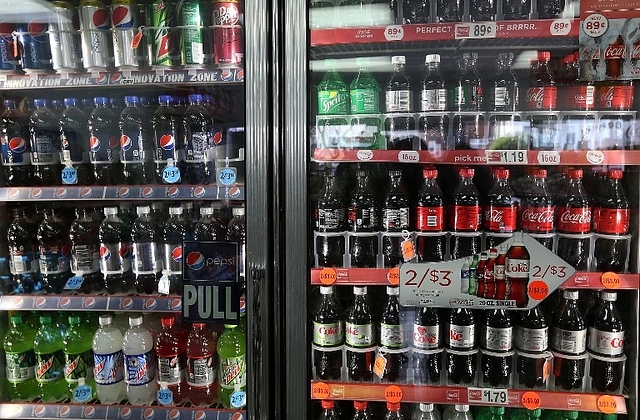
Junk Refined Sugar
Other than as a sweetener, it has neither nutritive value for the consumer nor commercial value for the farmer.
One of the biggest truths in the history of the world is that the colonial powers tried their hardest a few centuries ago to ensure that their own people did not become opium addicts, while trying their level best to ensure that China as a country was destroyed by unrestricted supply of opium in the name of free trade. We in India, with our funny re-formulated history, seem to have put this in the back recesses of our collective mind — maybe also because the history of our ideals and modern idols was written with ink bought out of opium exports!
The Chinese have no such qualms about calling a running dog selling opium an imperialist tool of death, nor have they forgiven that. That this opium was grown and shipped from India, is something that China will never forget either.
We have a similar situation with junk food in India, lately. Whether it is the cancer-causing soft drinks or the absolutely atrocious processed foods, the Western world is rapidly moving out of consumption of these dangers, while at the same time flogging them for what they are worth in a sheer battle for their survival on to India and other consuming countries.
Some countries have been strong; they have taken them head-on. Bolivia is one example. In India, the Delhi High Court recently passed a judgement on the subject, which can at best be called “something is better than nothing”. But then, why blame the judiciary alone when government appears to be unwilling to tighten the screws on something so heavily against national interest?
The Delhi High Court decision talks about, briefly:
– restricting junk food in and around schools
– regulating advertising and endorsing of junk foods
– evolving a school canteen policy with healthy food options
– limit usage of trans-fats to 5 per cent, and
– educating school children on healthy foods
There is obviously a lot more to do. The purveyors of death by cancer cola and diabetes and worse, by garbage junk food, will not give up so easily. If anything, expect them to come roaring back with bigger ad budgets and vicious ways of getting into the heads of, especially, our young people.
But that’s not all. The real anti-national aspect comes from what I call the deeper sociology of sugar.
Plantations where slaves work for centuries to make refined white sugar, which is of no tangible use to the farmer other than as a sweetener in lieu of other better options, actually work towards poisoning the entire human race. Yesterday’s opium is today’s refined sugar. We are destroying India by sugar. As simple as that.
Nothing can be unhealthier than the way white sugar has entered everything in our lives. Add extra sugar, then add extra salt to counter it, then add more sugar! Look around you, not just in and behind coloured advertisements for packaged soft drinks and junk food, but now also into our street fast food. Even the maida and ready-to-cook potatoes have refined sugar added to them now.
This, in turn, fuels a hunger for more and more sugarcane.
Within the Indian context, sugarcane farming is a ‘damned if you do and damned if you don’t’ option for most of rural India, especially when payments for cane supplied in past years are held back to force the farmers to plant some more sugarcane instead of faster-growing cash crops which can be sold or bartered or used by the farmers themselves. In addition, with drastic climatic change, a main crop of sugarcane can as easily become a liability in a trice for a variety of reasons — a climate too wet or too dry being just two.
The biggest consumer of refined sugar in India now is the fast food industry, both, for use in soft drinks as well as in junk food. And the sugar mills are lobbying hard for taxpayers’ support to keep their costs down. Meanwhile, the prices of fresh produce and lentils have already gone through the roof and they are, thanks to the unseasonal rains a few weeks ago, likely to shoot up even further.
There is currently nothing more anti-national than forcing farmers to grow sugarcane to keep this useless soft drink and junk food industry in profits, in India. That is the simple truth, and the sooner it is responded to, the better.
As consumers, we will need to start a “Say No to Junk Food” kind of a movement, just like we did for firecrackers. To repeat the point, we need to do this ‘yesterday’, as there is nothing more anti-national from the production as well as consumption point of view as junk food and cancer colas being pushed hard in India.
If anything, it is worse than the opium that was forced into the Chinese “market” a few centuries ago.